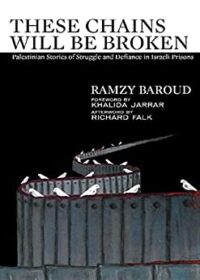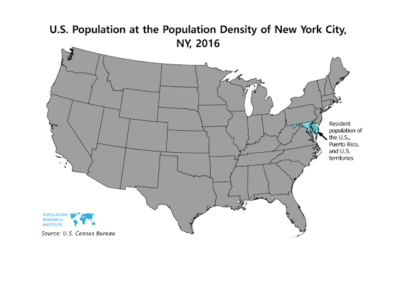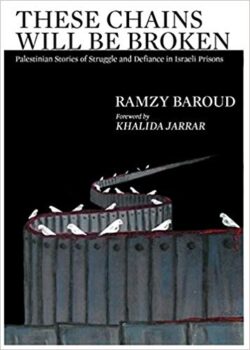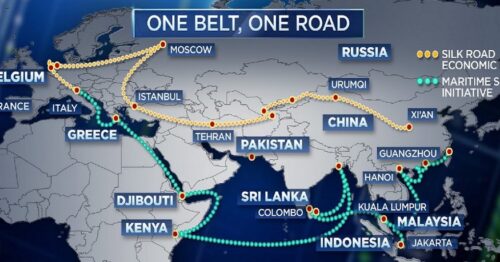Since signing the Abraham Accords, the UAE and Bahrain have been actively colluding with Israel’s settler movement and military authorities
The professed rationale for the recent Abraham Accords, so-called “peace deals” signed with Israel by the UAE and Bahrain, was to stymie Israeli efforts to annex swaths of the West Bank.
The aim was supposedly to neutralise another “peace” plan – one issued early this year by US President Donald Trump’s administration – that approved Israel’s annexation of large areas of the West Bank dominated by illegal Jewish settlements.
The two Gulf states trumpeted the fact that, in signing the accords in September, they had effectively scotched that move, thereby salvaging hopes of a future Palestinian state. Few observers entirely bought the official story – not least because Israeli Prime Minister Benjamin Netanyahu vowed that annexation had only been put on temporary hold.
The real purpose of the Abraham Accords appeared less about saving Palestinians than allowing Gulf states to go public with, and expand, their existing ties to Israel. Regional intelligence could now be shared more easily, especially on Iran, and the Gulf would gain access to Israeli hi-tech and US military technology and weapons systems.
Separately, Sudan was induced to sign the accords after promises it would be removed from Washington’s list of “terror-supporting” states, opening the door to debt relief and aid. And last week, Morocco became the fourth Arab state to initiate formal relations with Israel after the Trump administration agreed to recognise its occupation of Western Sahara.
Twisting more arms
Israel, in return, has been able to begin “normalising” with an important bloc of Arab states – all without offering any meaningful concessions on the Palestinian issue.
Qatar and Saudi Arabia are also reported to have been considering doing their own deals with Israel. Jared Kushner, Trump’s Middle East adviser, visited the region this month in what was widely assumed to be a bid to twist arms.
Riyadh’s hesitation, however, appears to have increased after Trump lost last month’s US presidential election to Joe Biden.
Last week, during an online conference held in Bahrain and attended by Israeli Foreign Minister Gabi Ashkenazi, a former senior Saudi government official, Turki al-Faisal al-Saud, launched a blistering verbal attack on Israel, saying it jailed Palestinians in “concentration camps” and had built an “apartheid wall”. It was unclear whether he was speaking in more than a personal capacity.
While the covert purpose of the Abraham Accords was difficult to obscure, the stated aim – of aiding Palestinians by preventing Israel’s annexation of the West Bank – was still seen as a vital tool for the UAE and Bahrian to sell these agreements back home.
But in practice, both have quickly jettisoned any pretence that Palestinians will benefit from these deals. Not only that, but already they barely bother to conceal the fact that they are actively and tangibly colluding with Israel to harm Palestinians – by bolstering Israel’s illegal settlements and subsidising its military regime of occupation.
Trade with settlements
Bahrain demonstrated this month how indifferent it is to the negative impacts on Palestinians. On a visit to Israel, the country’s trade minister, Zayed bin Rashid al-Zayani, said Bahrain was open to importing products from Israel wherever they were manufactured. “We have no issue with labelling or origin,” he said.
The comment suggested that Manama was ready to become a gateway for Israel to export settlement products to the rest of the Arab world, helping to bolster the settlements’ legitimacy and economic viability. Bahrain’s trade policy with Israel would then be even laxer than that of the European Union, Israel’s top trade partner. The EU’s feeble guidelines recommend the labelling of settlement products.
After wide reporting of Zayani’s comments, Bahrain’s state news agency issued a statement shortly afterwards saying he had been “misinterpreted”, and that there would be no import of settlement goods. But it is hard not to interpret the remarks as indicating that behind the scenes, Bahrain is only too willing to collude in Israel’s refusal to distinguish between products from Israel and those made in the settlements.
That this is the trading basis of the Abraham Accords is further highlighted by reports that the UAE is already welcoming business with Israel’s illegal settlements. An Israeli winery, using grapes grown on the Golan Heights, a large plateau of Syrian territory seized by Israel in 1967 and illegally annexed in 1981, has reportedly started exporting to the UAE, which has liberalised its alcohol laws for non-citizens.
This is a fruitful turn of events for Israel’s 500,000 settlers in the occupied West Bank. They have lost no time touting for business, with the first delegation arriving in Dubai last month hoping to tap new markets in the Arab world via the UAE. Last week a settler delegation reportedly returned to Dubai to sign an agreement with a UAE company to import settlement goods, including alcohol, honey, olive oil, and sesame paste.
New low-point
This marks a new low-point in the shift by Arab states away from their original position that Israel was a colonial implant in the region, sponsored by the West, and that there could be no “normalisation” – or normal relations – with it.
In 2002, Saudi Arabia launched the Arab Peace Initiative, which offered Israel full diplomatic relations in return for ending the occupation. But Gulf states are now not only normalising with Israel when the occupation is actually intensifying; they are normalising with the occupation itself – as well as its bastard progeny, the settlements.
Israel has built more than 250 settlements across a vast expanse of occupied Palestinian territory – 62 percent of the West Bank, referred to as Area C under the Oslo Accords. This area was supposed to be gradually transferred to the Palestinian Authority (PA), the government-in-waiting under Mahmoud Abbas, to become the territorial backbone of a Palestinian state.
Instead, over the past quarter of a century, Israel has used its supposedly temporary control over Area C to rapidly expand the settlements, stealing vital land and resources. These colonies have been highly integrated into Israel, with settler roads criss-crossing the occupied West Bank and tightly limiting Palestinian movement.
The peace deals with the UAE and Bahrain will help the settlements entrench further, assisting Israel’s longstanding policy of annexing the West Bank in all but name, through the creation of facts on the ground – the very outcome the Abraham Accords were ostensibly meant to prevent.
Yossi Dagan, head of the West Bank regional council that visited Dubai last month, declared that there was “no contradiction between our demand to impose sovereignty [annex large parts of the West Bank] and the strengthening of commercial and industrial ties” with the Gulf.
Al-Aqsa dividend
In other words, settlers see the Abraham Accords as a business opportunity to expand their footprint in the occupied West Bank, not an obstacle. The likely gains for the settlers will include tourism, too, as visitors from the Gulf are expected to flock to al-Aqsa Mosque in occupied East Jerusalem.
The irony is that, because of Israel’s physical seizure of areas around the Islamic holy site and its control over access, Gulf Arabs will have far greater rights at al-Aqsa than the majority of Palestinians, who cannot reach it.
Jordan, which has long been the custodian of al-Aqsa, justifiably fears that Saudi Arabia may use a future accord with Israel to muscle its way into taking charge of the Jerusalem holy site, adding it to its guardianship of Mecca and Medina.
In occupied Jerusalem, Palestinians are deprived of the chance to develop their own housing, let alone infrastructure to cope with the business opportunities provided by the arrival of wealthy Gulf Arabs. That should leave Israel and its settler population – rather than Palestinians – well-placed to reap the dividends from any new tourism ventures.
In a supreme irony, a member of the Abu Dhabi ruling family has bought a major stake in the Beitar Jerusalem football team, whose supporters are fiercely anti-Arab and back the takeover of East Jerusalem by settlers.
Palestinian laboratories
During his visit, Bahrain’s Zayani observed that, as his country geared up for flights to and from Israel next month: “We are fascinated by how integrated IT and the innovation sector in Israel has been embedded in every facet of life.”
But Israel’s technology sector is “embedded in every facet of life” only because Israel treats the occupied Palestinian territories as a laboratory. Tests are conducted there on how best to surveil Palestinians, physically limit their movement and freedoms, and collect their biometric data.
The hi-tech firms carrying out these experiments may be formally headquartered inside Israel, but they work and profit from their activities in the occupied territories. They are a vast complex of settlement businesses in their own right.
This is why Nabil Shaath, an aide to Abbas, observed of the Gulf’s burgeoning ties with Israel that it was “painful to witness Arab cooperation with one of the worst manifestations of aggression against the Palestinian people, which is the Israeli settlements on our land”.
Settler ally
How enthusiastically the UAE and Bahrain are getting into the occupation business, and preparing to subsidise its worst features, is highlighted by the Abraham Fund, set up by the US in October. It is a vehicle for Gulf states and Israel to secure billions of dollars in private investment to underpin their new diplomatic relations.
Again, the official story has glossed over the reality. According to statements from the main parties, the fund is intended to raise at least $3billion to bolster regional economic cooperation and development initiatives.
The UAE’s minister of state, Ahmed Ali Al Sayegh, has said: “The initiative can be a source of economic and technological strength for the region, while simultaneously improving the lives of those who need the most support.”
The fund is supposed to help Palestinians, as one of those groups most in need of support. But again, the main parties are not playing straight. Their deception is revealed by the Trump administration’s selection of who is to head the Abraham Fund, one of its last appointments before the handover to Biden.
According to the Jewish Telegraphic Agency, the fund will be overseen by Aryeh Lightstone, a fervently right-wing rabbi and ally of Israel’s settler community. Lightstone is a senior adviser to David Friedman, the US ambassador to Israel who has his own strong ties to the settlements. Friedman pushed aggressively for the US to move its embassy from Tel Aviv to occupied Jerusalem. Trump finally did so in May 2018, breaking an international consensus against locating diplomatic missions in Jerusalem.
Checkpoint upgrade
The political priorities of Lightstone are evident in one of the Abraham Fund’s first declared projects: to “modernise” Israeli checkpoints across the occupied West Bank.
The checkpoint upgrade is being hailed by US officials as benefiting Palestinians. It will speed up their passage as they try to move around the occupied West Bank, and as those with permits enter Israel or the settlements to work. One senior Trump administration official promised checkpoint delays that currently keep Palestinians waiting for many hours could be dramatically cut: “If I can upgrade that, which doesn’t cost a lot of money, and have it take 30 seconds, I am blowing up [freeing up] 400,000 work hours a day.”
There are many glaring problems with this approach – not least that under international law, belligerent military occupations such as Israel’s must be temporary in nature. Israel’s occupation has endured for more than five decades already.
Efforts to make the occupation even more permanent – by improving and refining its infrastructure, such as through upgrades to create airport-style checkpoints – is in clear breach of international law. Now the Gulf will be intimately involved in subsidising these violations.
Further, the idea that the Abraham Fund’s checkpoint upgrade is assisting Palestinians – “those who most need support” – or developing their economy is patently ridiculous. The fund is exclusively helping Israel, a robust first-world economy, which is supposed to shoulder the costs of its military rule over Palestinians.
The economic costs of occupation are one of the few tangible pressures on Israel to withdraw from the territories and allow Palestinians sovereignty. If the oil-rich Gulf states help pick up the tab, they will incentivise Israel to stay put and steal yet more Palestinian land and resources.
Indeed, the hours being freed up, even assuming that is what actually happens, are unlikely to help the Palestinian economy or bring financial benefits to the Palestinian labourers Israel has made dependent on its economy through the lengthy occupation. To develop their own economy, Palestinians need their land and resources stolen by Israel restored to them.
Herding Palestinians
Seen another way, the Abraham Fund’s planned checkpoint upgrade is actually a subsidy by the Gulf to the settlements. That is because the very purpose of the checkpoints is to enforce Israeli control over where and when Palestinians can travel in their homeland.
Israel uses the checkpoints as a way to herd Palestinians into particular areas of the occupied West Bank, especially the third under nominal PA control, while blocking their entry to the rest. That includes a denial of access to the West Bank’s most fertile land and its best water sources. Those areas are exactly where Israel has been building and expanding the settlements.
Palestinians are in a zero-sum battle against the settlers for control over land in the occupied West Bank and East Jerusalem. Any help Israel receives in restricting their movement through checkpoints is a loss to Palestinians and a victory for the settlers. Modernised checkpoints will simply be far more efficient at herding Palestinians where Israel and the settlers want them to be.
In partnering with Israel on upgrading checkpoints, the Gulf will be aiding Israel in making its technology of confinement and control of the Palestinian population even more sophisticated, benefiting once again the settlers.
This is the real story of the Gulf’s Abraham Accords – not simply of turning a blind eye to Israel’s decades-long oppression of Palestinians, but of actively becoming partners with Israel and the settlers in carrying out that oppression.
• First published in Middle East Eye
This article was posted on Monday, December 14th, 2020 at 11:23pm and is filed under Annexation, Apartheid, Bahrain, Benjamin Netanyahu, Donald Trump, EU, Human Rights, Hypocrisy, Iran, Israel/Palestine, Israeli Defence Force (IDF), Jordan, Land Theft, Morocco, Occupation, Palestinian Authority, Qatar, Saudi Arabia, Sudan, Surveillance, Technology, Tourism, Trade, United States, US Military, West Bank, Zionism.









